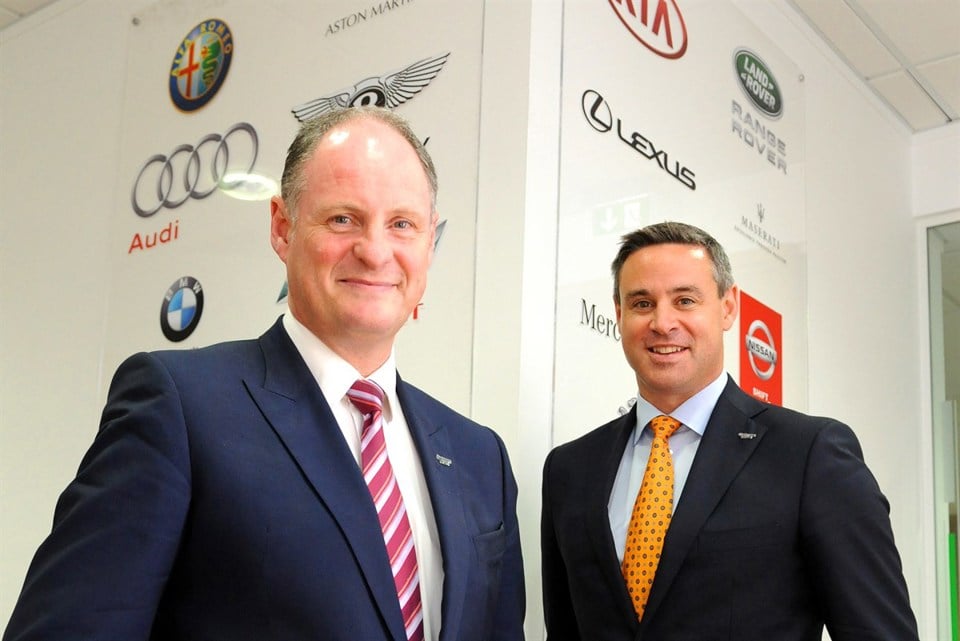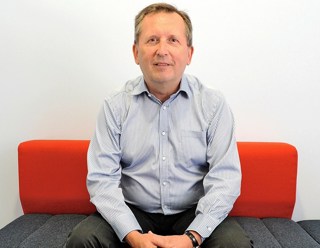Lookers has recorded a 14.9% increase in turnover and 2.7% increase in operating profits in a “robust” set of annual results for the period to December 31, 2017.
A reappraisal of the group’s franchise portfolio, which saw the closure or sale of 15 underperforming sites during the reporting period, and efforts to drive fleet sales and improve efficiencies in aftersales departments were all partly credited with the buoyant financial returns.
Total turnover for the period rose to £4.696 billion (2016: £4.088bn) as operating profits – before amortisation and impairment of intangibles – from £82.5 million to £84.7 million.
Adjusted profit before tax of £68.4 million was up 5.4% on 2016’s £64.9 million, excluding the £28 million realised by the sale of its parts division to Alliance Automotive in late 2016.
Lookers’ strong set of results has prompted the group to commence a share buyback scheme with an expected value of £10 million, which chief operating officer, Nigel McMinn, told AM would help “ensure the balance sheet remains strong”.
McMinn said: “We know we can make 15% return on capital on those shares and when you can invest in yourself and make that kind of return it makes real sense.”
Difficult trading period
Chief executive, Andy Bruce, conceded that Lookers’ results represented “a positive performance against a backdrop of difficult trading conditions across the motor sector, particularly in the second half of the year”.
And McMinn said: “I think it’s a strong reflection on the state of the industry, really. We have faced the same headwinds as everyone else, with Brexit and diesel, but our strategy has helped us emerge in good shape.”
McMinn said that Lookers had looked to cut costs and remove manufacturer relationships which did not represent efficiencies of scale.
The group made redundancies which numbered “into three figures” during 2017, a process which would add cost in the short-term but deliver savings in the longer term, he added.
But the strategy of “having the right brands in the right locations” is delivering results.
On the back of the strong returns for 2017, Bruce said that Lookers’ order book for new cars in March was “in-line with our expectations”, adding that “whilst the new car market for this year is forecast to reduce, it is still at a historically high level.
“We expect to make further progress over 2018 with good momentum in used cars and aftersales and a resilient performance in new cars.”
Sector successes
Lookers’ new car sales volumes for 2017 – which represented 33% of the group’s gross profit – reduced by 4.4% in retail but increased by 1.4% in fleet as its total new car turnover (£2.48bn) increased by 12% year-on-year and increased by 3% on a like-for-like basis.
Gross profit from new cars increased by 2.2% year-on-year and by 2.6% on a like-for-like basis.
Lookers’ report said that the group had seen success in its additional focus on the fleet sector, with fleet turnover, including commercial vehicles, increasing by of 17.6% or 5.6% on a like-for-like basis.
The group said that its used car performance – which accounts for 22% of total gross profit – still represents “a significant opportunity”, adding that it expects to benefit from the increasing number of leads generated by its website, following a 34% year-on-year increase in 2017.
In the reported period turnover of used cars by Lookers (£1.7bn) increased by 19%, or 13% on a like-for-like basis, compared to 2016, as gross profit increased by 27%, or 15% like-for-like, the group said.
Lookers review of 2017 stated that an increased emphasis on performance and specific targets and higher numbers of customers choosing to enter into service contracts had helped deliver growth in aftersales turnover and profits.
Aftersales accounts for 41% of the group’s profits and turnover (£516m) increased by 16% compared to 2016 and 4% on a like-for-like basis in 2017. Gross profit increased by 14%, or 3% on a like-for-like basis, meanwhile, with the margin also at a similar level compared to last year.
Elsewhere, the group said that it would be “actively pursuing an earnings-enhancing acquisitive strategy” in-line with a recent restructure of its portfolio.
In the last 18 months Lookers has sold or closed 15 businesses which, together with the two major acquisitions, it said had “significantly improved and strengthened our portfolio of franchise representation”.
In the second half of 2016, the group completed the acquisitions of the Knights BMW and Mini dealerships as well as the Drayton Mercedes-Benz dealerships, both of which have made a positive contribution to the company’s profits, it said.
Strong cash position
Looker’s net debt increased by £23.7 million during 2017 but the group attributed this to due to the higher level of working capital and the delayed sale of operations in Glasgow and Dublin.
The group’s bank facilities were renewed and increased in September 2015, to fund the acquisition of Benfield.
The facilities consisted initially of a term loan of £100 million, which has since reduced to £75 million and a revolving credit facility of £150 million.
There is also the potential to increase the term loan by up to £30 million to fund future acquisitions, Lookers said.
Commenting on the challenges posed by the year ahead. Bruce said: “We continue to make significant investments to upgrade our facilities and enhance our multi-channel customer experience.
“We believe this gives us a competitive advantage to strengthen our position as a leading UK automotive retail and aftersales service group which leaves us very well positioned for future growth over the medium to long term.”
















Login to comment
Comments
No comments have been made yet.